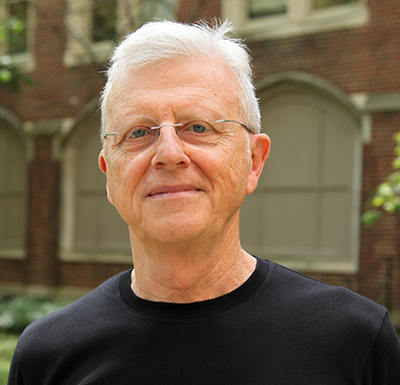Research, News & Discoveries
-

Regulators of fat cell metabolism
Sep. 7, 2021, 8:00 AM by Leigh MacMillan The cardiac natriuretic peptides (NPs) maintain blood pressure and fluid volume and stimulate fat cell metabolism. The expression level of NPRC — a “clearance” receptor that binds and degrades NPs — in adipose tissues is critical for NP action, yet little is… Read MoreSep. 10, 2021
-

Antibodies help neutralize two deadly viruses: study
Sep. 8, 2021, 3:04 PM by Bill Snyder Cross-reactive human monoclonal antibodies isolated by researchers at Vanderbilt University Medical Center prevented, in an animal model, severe illness and death caused by two emerging and deadly viruses called Nipah and Hendra. Their results, published this week in the journal Cell… Read MoreSep. 10, 2021
-

Caught in a web: study reveals that immune cells cooperate to trap and kill bacteria
by Leigh MacMillan Like a spider trapping its prey, our immune system cells cooperate to capture and “eat” bacteria. The newly identified antibacterial mechanism, reported Sept. 10 in Science Advances, could inspire novel strategies for combating Staphylococcus aureus (staph) and other extracellular bacterial pathogens. It was… Read MoreSep. 10, 2021
-

Novel finding shows that brain cells conduct antidepressant action even in the absence of activity
THE IDEA Ege Kavalali (Vanderbilt University) Lisa Monteggia (John Russell/Vanderbilt University) Researchers are one step closer to understanding the physiology of antidepressant action in the brain. They have confirmed that even when brain cells are not active, they trigger protein production that affects the function of cells and neural circuits. The… Read MoreSep. 2, 2021
-

Ascano Receives Chancellor’s Award for Research
Manny Ascano is the 2021 Channcellor’s Award recipient for ground-breaking cancer research. Chancellor Daniel Diermeier, Provost and Vice Chancellor for Academic Affairs Cybele Raver and Faculty Senate Chair Mark Magnuson, Louise B. McGavock Professor of Molecular Physiology and… Read MoreAug. 31, 2021
-

Discovery offers insight for development of cancer therapies targeting mutant p53
by Bill Snyder The tumor suppressor protein p53 is mutated in more than half of all human cancers. Several drugs that potentially can restore mutant p53 to its normal cancer-killing function are in clinical investigation. However, much remains to be learned about various mutations that lead to a “loss of… Read MoreAug. 30, 2021
-

COVID-19 antibody ‘cocktail’ discovered at VUMC protects chronically ill: study
by Bill Snyder A monoclonal antibody cocktail against the COVID-19 virus discovered at Vanderbilt University Medical Center and developed by AstraZeneca reduced the risk of symptoms in a study of immunocompromised and chronically ill adults later exposed to the virus by 77%, the company announced today. Based on the… Read MoreAug. 26, 2021
-

Development of a new framework and tool for multi-drug synergy and combination
The Idea Carlos Lopez (Vanderbilt University) Vito Quaranta (Vanderbilt University) Pioneering research from Vanderbilt scientists identifies a measurement system for how well medications work together to help researchers devise new combinations of drugs. It also develops an open-source analysis tool to help speed such discoveries around the world. This research… Read MoreAug. 24, 2021
-

An interview with Chuck Sanders, newly elected president of the Protein Society
By Aaron Conley This summer, Chuck Sanders, associate dean for research, professor of biochemistry, and Aileen M. Lange & Annie Mary Lyle Chair in cardiovascular research at Vanderbilt University School of Medicine Basic Sciences, took the helm of the Protein Society as president with a term… Read MoreAug. 23, 2021
-

Potential protection from atherosclerosis
Aug. 19, 2021, 11:00 AM by Bill Snyder PON1 (paraoxonase 1), an enzyme associated with high-density lipoprotein (HDL), breaks down lipid peroxides, highly reactive fatty molecules that can damage blood vessels. In this way, PON1 can protect against the development of cardiovascular disease. Numerous studies have observed reduced PON1 enzymatic activity in… Read MoreAug. 20, 2021